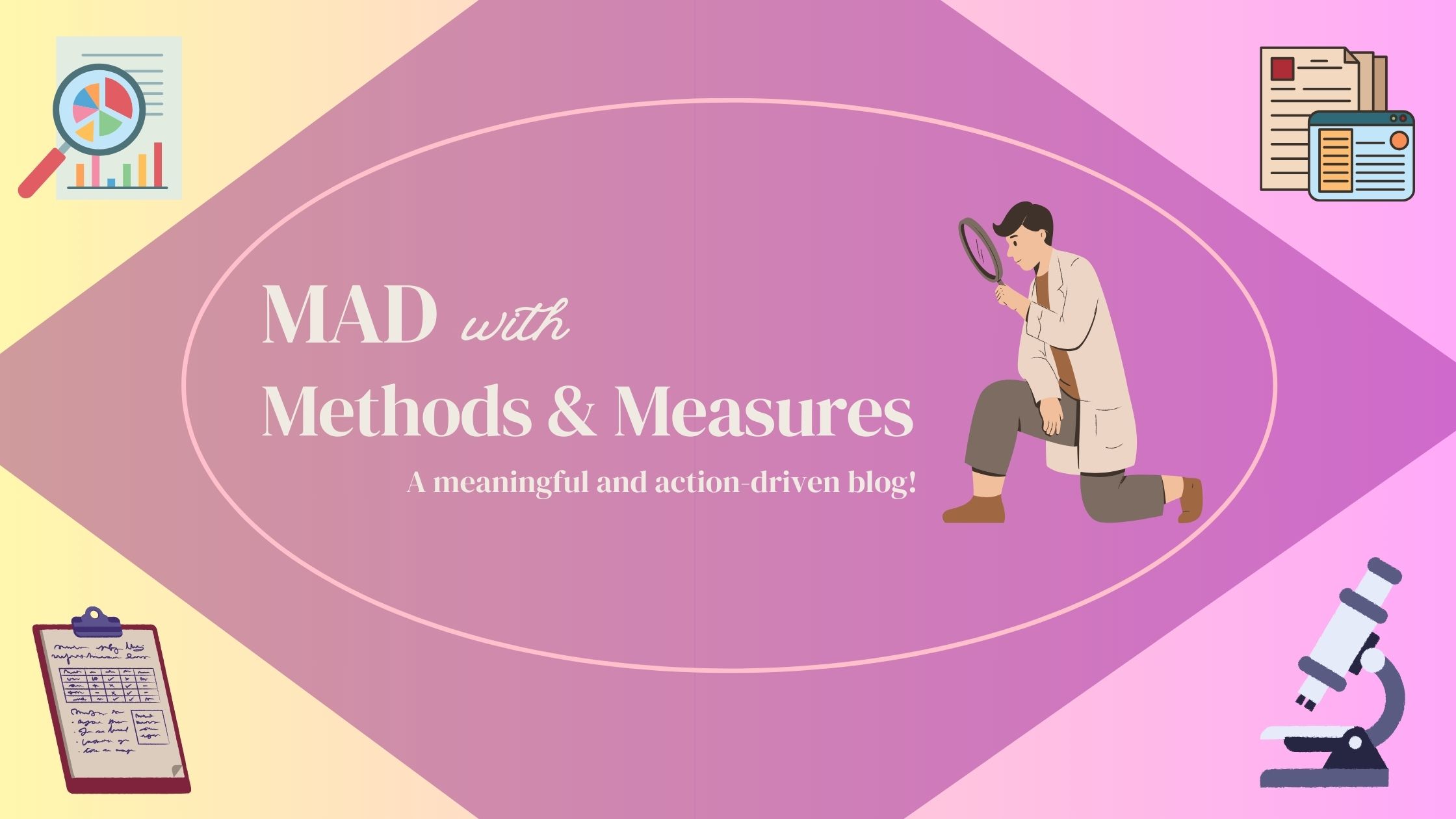Finding Your People: The Importance of Mentorship and Networking Early On

By Richard Amoako

Greetings, fellow scholars and aspiring professionals. As someone who is still relatively new to the field of evaluation, I can’t emphasize enough the significance of building a strong support network and establishing meaningful connections early in your career. My name is Richard Amoako, and I’m a third-year Ph.D. student in the Evaluation, Statistics, and Methodology (ESM) program at the University of Tennessee, Knoxville.
Allow me to share a brief anecdote that underscores the power of networking and mentorship. During my first year of graduate school at Ensign Global College, Ghana, I attended a “Welcome Reception”, feeling quite lost and overwhelmed. However, I mustered up the courage to introduce myself to a continuing student, who not only offered valuable insights into navigating the program but also connected me with a faculty member whose research aligned with my interests. That single conversation opened doors for me, leading to a fruitful mentorship relationship and even collaborative research projects and publications.
The Importance of Mentorship
Finding a mentor can be a game-changer, especially at the early stages of your career or academic endeavors. According to a publication by the American Psychological Association (APA), mentorship plays a crucial role in professional development, providing guidance, support, and opportunities for growth (Calkins, 2023). A mentor can serve as a trusted guide, offering advice and sharing industry knowledge that can accelerate your professional growth. They can provide insights into navigating challenges, identifying opportunities, and making informed career decisions.
Having a diverse set of mentors can significantly enhance your academic and career journey by providing support across different areas of your development. For example: A faculty mentor can offer deep insights into your field, guide your research, and help you navigate academic challenges; professional mentors bring industry knowledge and can guide you on career opportunities beyond academia, while peer mentors offer mutual support and foster a sense of community within your cohort. Additionally, cross-disciplinary mentors can help you think outside the box and provide insights into interdisciplinary collaboration, enhancing the breadth of your research and professional network (Chandler, 2011).
One of the best places to look for potential mentors is within your institution or organization. Seek out experienced professionals who inspire you and whose career paths align with your aspirations. Professional associations and conferences can be excellent platforms for connecting with potential mentors from diverse backgrounds and institutions. Not everyone may feel comfortable or confident approaching potential mentors at such events. As an introverted PhD student, I understand the challenge of navigating the bustling environment of conferences and professional events. Crowded spaces and numerous distractions can make it difficult to connect with potential mentors.
At one of the first major conferences I attended this year (American Educational Research Association, AERA, 2024), I felt overwhelmed by the sheer number of participants and the constant buzz of activity. Determined to make the most of the opportunity, I signed up for a small roundtable discussion focused on my research area. The roundtable provided a quiet setting where I could comfortably share my ideas, ask questions, and have meaningful interactions with panelists and facilitators.
When reaching out to potential mentors, it’s essential to approach the relationship with humility, respect, and a genuine desire to learn. Whether it’s through informational interviews, mentorship programs, or faculty-student collaborations, fostering meaningful connections with mentors can provide invaluable insights and open doors to opportunities that may otherwise remain out of reach.
Networking Strategies
Attending conferences and events such as professional development workshops, career fairs, research symposiums and colloquiums, Special Interest Groups (SIGs) and Meetups are crucial aspects of building your professional network in the evaluation community. These gatherings offer invaluable opportunities to connect with peers, established professionals, and potential collaborators from across the field.
To make the most of these events, prepare an elevator pitch, actively engage in conversations, and follow up with new connections after the event. The American Evaluation Association’s (AEA) annual conference is a good example of a major event where evaluators from around the world gather to share their work, learn from each other, and expand their networks. I had a great time when I attended the AEA evaluation conference for the first time in 2023 in Indianapolis, Indiana. The conference not only provided me with a platform to showcase my research but also allowed me to engage with like-minded individuals who share my passion for evaluation. Whether it’s striking up conversations during coffee breaks or attending panel discussions, conferences offer ample opportunities to expand your network and gather insights from seasoned professionals and industrial experts.
Joining professional organizations, such as the AEA, the AERA, or the Association for Institutional Research (AIR), among others, can also open up a wealth of networking opportunities. These organizations often offer local chapter meetings, online forums, and special interest groups, allowing you to connect with like-minded individuals and stay up-to-date with the latest trends and developments in your field. You will find that they not only foster a sense of belonging, but also offer avenues for professional development and growth.
In today’s digital age, building connections online has become increasingly important (Virk, 2023). Platforms like LinkedIn and X (formally Twitter) provide a space to showcase your professional profile, connect with others in your field, and engage in discussions within relevant industry groups and communities. These digital platforms provide ongoing networking opportunities, allowing professionals to connect and engage with each other continuously, rather than being limited to specific events (Pew Research Center, 2021). For Instance, the AEA, like other professional associations, has an active presence on LinkedIn. This platform also has groups dedicated to fostering discussions and sharing resources among evaluators.
Making Connections and Building Relationships
Effective networking is not just about collecting business cards or adding connections on LinkedIn. It’s about building genuine, mutually beneficial relationships. This involves actively listening, asking thoughtful questions, and showing a genuine interest in others’ work and experiences. As noted by Janasz and Forret (2008), successful networking relies on cultivating strong interpersonal ties and fostering a sense of reciprocity.
When making new connections, look for opportunities to offer value and share your knowledge and expertise. This could involve collaborating on projects, co-authoring publications, or simply providing insightful feedback and support. By positioning yourself as a valuable resource, you increase the likelihood of fostering long-lasting, meaningful relationships within your professional or academic community.
Overcoming Challenges and Staying Motivated
For many, the idea of networking can be daunting, especially for those who identify as introverted or shy. However, it’s important to remember that networking is a skill that can be developed with practice and persistence. Start small, perhaps by attending a local meetup or joining an online community, and gradually build your confidence. As posited by de Janasz and Forret (2008), setting achievable goals, and celebrating small wins can help overcome the initial hesitation and discomfort associated with networking.
These are the strategies I have adopted over the past few years: Before attending a conference, I find it helpful to do some homework. I review the conference program and identify sessions, workshops, and speakers that align with my research interests. By pinpointing the key individuals I’d like to connect with, I can set manageable goals for the event. This preparation not only eases the anxiety of large crowds but also provides a clear roadmap for meaningful interactions. Moreover, I focus on smaller, more manageable interactions instead of trying to network in large groups. For instance, I look for opportunities to engage with speakers after their presentations. These moments often provide a quiet setting for a brief, yet impactful conversation. Additionally, attending smaller workshops or special interest group meetings can offer a more intimate environment, conducive to connecting with like-minded individuals.
Consistency is key when it comes to networking efforts. Building a strong network takes time and commitment, so celebrate small wins and progress along the way. This will help you stay motivated and focused on your long-term goals of establishing meaningful connections within the evaluation community.
Conclusion
As an early-career professional in the field of evaluation, surrounding yourself with a supportive network of mentors and peers can make a significant difference in your personal and professional growth. By actively seeking out mentorship opportunities, attending conferences and events, joining professional organizations, and building meaningful connections, you’ll not only expand your knowledge and skills but also gain invaluable insights and perspectives that can shape your career trajectory.
I urge you to embrace the power of mentorship and networking early on in your journey. Whether you’re attending conferences, joining professional organizations, or seeking out mentors, remember that building a support network is not just about furthering your career—it’s about finding your tribe, your people who will uplift and empower you every step of the way.
Remember, the journey of building a strong network starts with taking that first step. So, don’t hesitate – start exploring opportunities to connect with others in your field today. The relationships you forge now could open doors to exciting collaborations, rewarding mentorships, and a fulfilling career path.
I hope this blog post has inspired you to prioritize networking and mentorship as you navigate the early stages of your career. Wishing you all the best in your networking endeavors!
References:
Calkins, H (2023). How to navigate the dynamics of mentorship. Knowing the best ways to handle challenges and conflict is crucial to being a good mentor. https://www.apa.org/monitor/2023/01/dynamics-mentorship
Chandler, D. E. (2011). The Maven of Mentoring Speaks: Kathy E. Kram Reflects on Her Career and the Field. Journal of Management Inquiry, 20(1), 24-33. https://doi.org/10.1177/1056492610369937
de Janasz, S. C., & Forret, M. L. (2008). Learning The Art of Networking: A Critical Skill for Enhancing Social Capital and Career Success. Journal of Management Education, 32(5), 629-650. https://doi.org/10.1177/1052562907307637
Havard (2022). How to Give a Great Elevator Pitch (With Examples). https://careerservices.fas.harvard.edu/blog/2022/09/07/how-to-give-a-great-elevator-pitch-with-examples/
Janasz, S. & Forret, M. (2008). Learning The Art of Networking: A Critical Skill for Enhancing Social Capital and Career Success. Journal of Management Education, 32. 629-650. https://doi.org/10.1177/1052562907307637
Pew Research Center. (2021). Social media fact sheet. Retrieved from https://www.pewresearch.org/internet/wp-content/uploads/sites/9/2021/04/PI_2021.04.07_Social-Media-Use_FINAL.pdf
Virk, S (2023). Connecting in the digital age: Navigating technology and social media. VISUAL LIFE. https://rikithompson.ds.lib.uw.edu/visuallife/connecting-in-the-digital-age-navigating-technology-and-social-media/
Resources:
Vinnie Malcolm, The Mutual Benefits of Mentorship https://www.youtube.com/watch?v=2lCjjlLK2m8
Benefits of Mentorship https://www.youtube.com/watch?v=a4dD0Ch4T4I
Why is Networking Important? https://www.youtube.com/watch?v=T2I9odCTILA
Professional Networking 101 https://www.youtube.com/watch?v=Xt-VdqXhHZM
How to NETWORK for career & jobs | Networking tips for professionals https://www.youtube.com/watch?v=IO5Ht7yV_0A